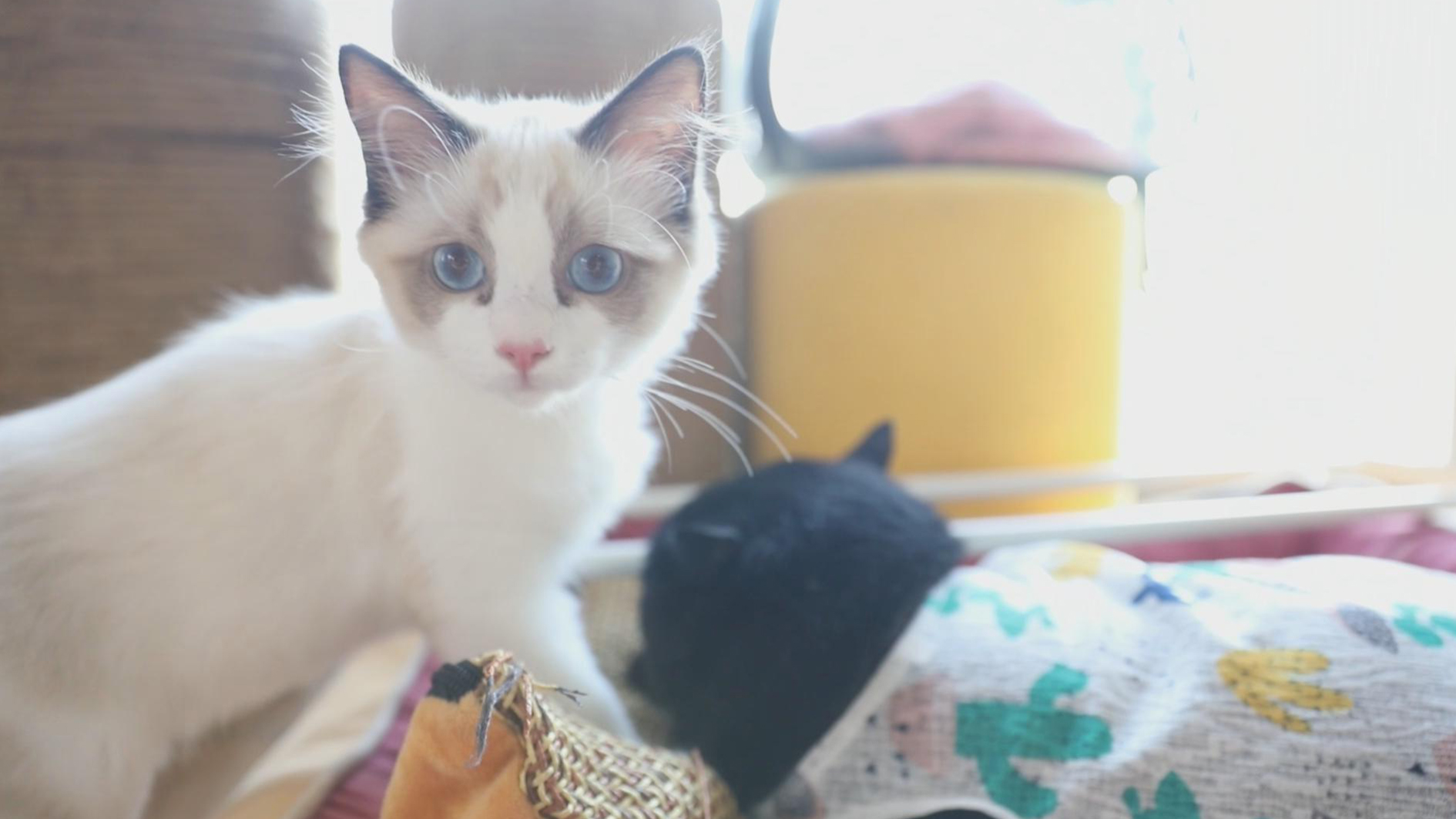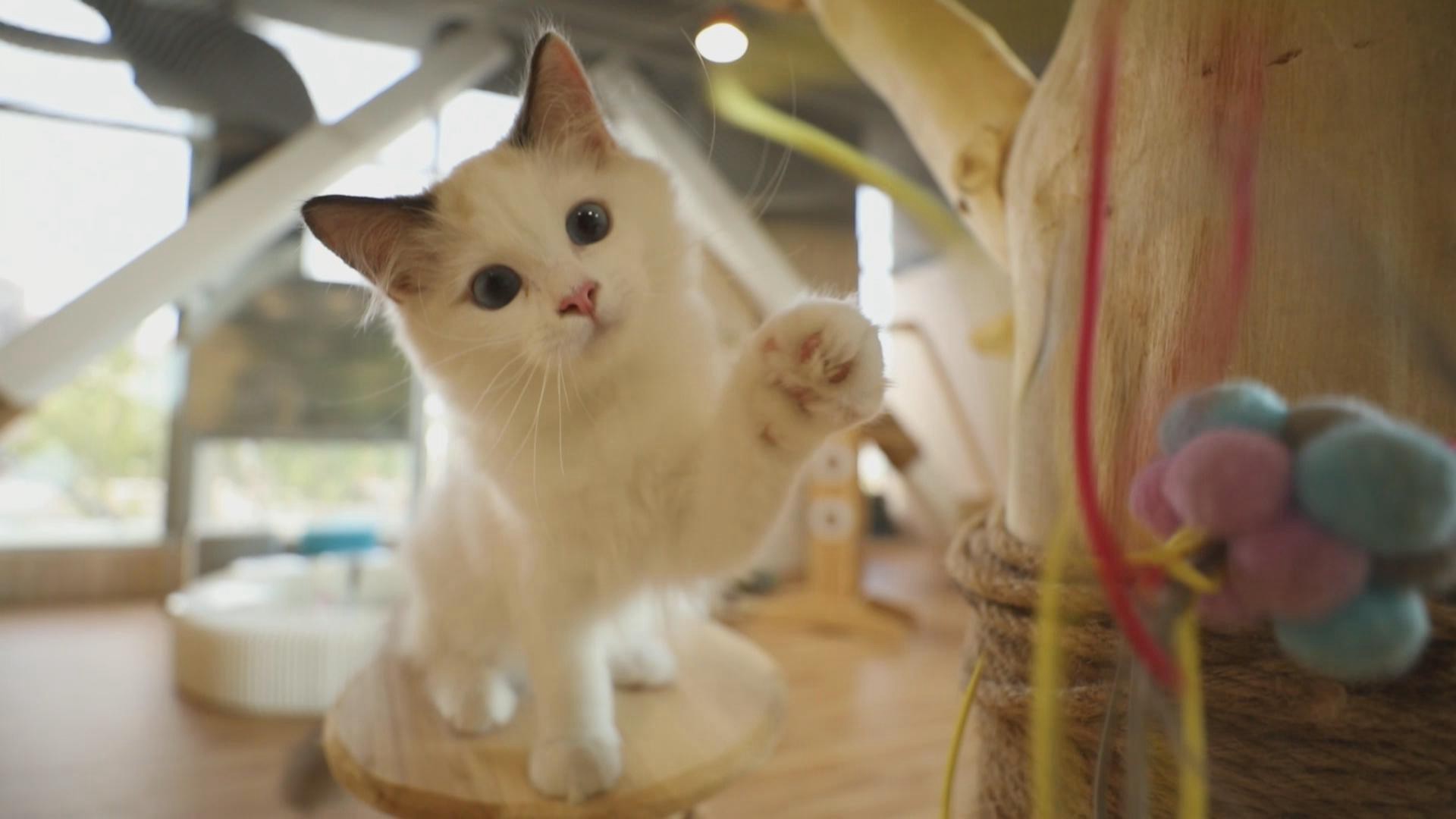17:34

The Chinese pet market value is now around 200 billion yuan (about 28.9 billion U.S. dollars) and is expected to grow by 15 percent every year for the next five years. According to Roland Berger, the market size will double by 2025. With the pandemic, more people are seeking emotional support from their four-legged pals. Hence, spending on pet products is rising even faster. Companies are coming into the market for treats. I talked to some of them to find out what's behind this pet fever.
MollyBox is nipping at the heels of the more traditional shops with clever new products and subscription services. The boxes are priced from 99 to 400 yuan a month, with toys, snacks, and cleaning products inside. Founder and CEO Ju Yi says his customers are well educated white collars.
The box makes cats happy, while the design of the box is also extremely photo-and social media-ready.
Ju says social media is the most affordable way for him to sniff out new costumers. The company offers collaboration boxes with other brands to reach new users and using pet-friendly KOLs to share their posts on social media platforms. In just three years since its launch, Mollybox now has 320,000 cat lovers and is adding around 20,000 new customers each month.
Other than photo-ready products, many pet parents are looking for smart pet devices, such as drinking fountains, digital feeders, blue-tooth leash, etc. According to Global Market Insights, the global pet tech market is poised to rise from 4.5 billion U.S. dollars in 2018 to over 20 billion U.S. dollars by 2025. Investment is pouring in. PetKit, an SH-based pet tech company, raised 20 million U.S. dollars in its third financing round in February 2019.
The company's CEO Guo Weixue says young people live a fast-paced life, so they're "lazy". Smart pet products perfectly fit their needs. "For instance, with a drinking fountain, the pet owner won't have to wash water bowls for pets every day. Major demand comes from first and second-tier cities, while in smaller cities where life pace is slower, demand is weak", said Guo.
As for any tech firm, innovation is the key. Eighteen percent of the PetKit's cost goes to research and development.
Guo was proud to tell me he found they were ahead of their foreign peers when he took PetKit products to overseas exhibits.

Topping the list of pet consumption remains, undoubtedly, food. Spending on pet food accounted for nearly 40 percent of China's total consumption on pet products in 2019, said China Pet Industry White Paper 2019. That was more than double the amount spent on pet snacks and four times that of medical treatment for pets.
The market size is huge, but some 70 percent of it goes to imported brands. That's a two-edged sword for domestic pet food makers.
Cui Jia, founder of Crazy Dog, a pet food brand, said this is because the Chinese pet market only has 20 years history, "It takes a much longer time for consumers to learn about a domestic brand, trust it and fall in love with it."
Crazy Dog focuses on selling online, targeting millennial consumers. The company reaped 1.2 billion yuan in sales last year, 90 percent of it comes from online shops.
A healthy diet is among the major trends in the global pet industry, said Violet Chen, Head of Kinship China, a Mars Petcare division. People treat pets like their family, so they'd want the same balanced diet they want for themselves. Also, telecom medicine and health consultation services are on the rise. "Investors will be looking for start-ups that are creative in bonding with customers and unlocking long-term value." said Chen, "It's not the technology itself that matters the most, it's the user experience. Anything that can make purchasing of pet products and acquiring information easier for pet parents have the potential to win."
Young people living in Chinese cities can work 10 to 12 hours a day, with no time for dating or do fitness, but they still need an emotional companion. Because, sometimes, happiness is a warm puppy.